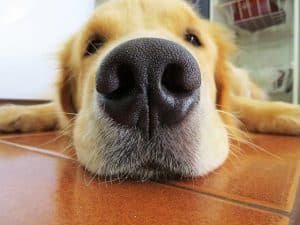What is cat or feline constipation and what causes it? What are some of the symptoms you should expect and what can you give a cat for constipating? Are there best cat constipation remedies?
A cat is said to be constipation when it is hard and painful for it to pass stool. This occurs when the stool becomes hard or large, making your pet to strain during bowel movement. This is a health problem associated with cat digestive system. Therefore, always be keen when your pet is spending a lot of time in the litter box, it may be constipated.

In case of this bowel movement problem, before you seek prescription medications from a veterinarian, we advise you try the home remedy or natural remedies we are going to discuss. Some of these remedies would be very successful than even some of the prescription medications from a vet.
Several factors can cause constipation in cats but, before we look at them let us discuss ways to tell if your cat is constipated? What are the symptoms or telltale signs?
Contents
Symptoms of cat constipation
If your cat is some of the following symptoms then, it may be constipated. However, the symptoms may also be resulting from other disorders such as urinary syndromes. Consult a veterinarian if you can’t determine the cause or know if your feline is constipated. Here are some of the symptoms that may indicate that a cat is constipated:
- Laboring or crying out during defecation
- When it eliminates small, dry, hard tools especially if covered with mucous or blood
- Frequent visits to litter boxes or delayed time in the litter box
- Loss of appetite
- Loss of weight
- Vomiting
- Lethargy
- Lack of grooming
- Signs of abdominal discomforts
According to Mercola.com, “not every constipated cat strains or cries in the litter box, or vomits, or stops eating, though those are all also signs of constipation,” Some constipated cats would not show any symptom at all, this has made many cat owners unaware of what the ordeal their pets are enduring through.
Causes
Why can't my cat poop? There are many causes of for this. Some causes may cause mild constipation while others would be severe cases. For instance, those that occur due to underlying medical conditions could be very severe.
The underlying causes also dictate the symptoms that would show alongside this condition. Here is the list of common causes of constipation in cats:
- Dehydration (major cause)
- A chronic disease like kidney diseases, diabetes, hyperthyroidism
- Ruptured or impacted anal sacs
- Dietary issues i.e. low fiber cat diet
- Orthopedic or neurologic problems
- Intestinal motility problems
- Fracture of pelvis
- Side effects of certain medications
- Ingestions of foreign objects for instance bones, strings, clothes etc.
- Hair tangling on its buttock
- Enlarged prostate glands
- Long haired cats would also suffer this condition because of hairballs.
Constipation in older cats
Any cat at any age can be constipated. All the causes mentioned above can cause constipation in both young and older felines. Old ones are more vulnerable to arthritis than young ones and this condition has been linked to constipation. Dr. Scott Gellman of Chestnut Hill Cat Clinic in Philadelphia says that “Older cats are frequently arthritic, and it can be painful to defecate in the box regularly, thus they will hold their stool longer, drying it out, and causing constipation.”
More importantly, you should also understand that arthritis is not usually the major cause of constipation for many of these pets.
Remember, if cat constipation is not treated, there is a possibility of other complications. For instance, untreated cat constipation would result in a chronic problem called megacolon. This is a condition where colon dilates and become too enlarged. This would make it lose its ability to contract to lead to a complete blockage (obstipation). You can avoid this condition by trying some of the cat constipation remedies we`ve discussed below.
With causes clear, obviously, you have several questions which include ‘what can I give my cat for constipation or what can you give a cat for constipation?’ What is the best cat food for constipation? What is the best cat constipation treatment?
Cat constipation remedies – natural home remedies
Depending on what is causing this problem, there are several remedies that can be used as cat constipation treatment. Before you proceed to a vet, there are superb DIY cat constipation remedies that are readily available at home.
These remedies include natural laxative for cats, stool softeners and dietary modifications among others. Note that for cases such as megacolon, blocked anal sacs etc. you should seek medical help from a veterinarian- in such cases since the various remedies at home would be of little significance.
Most remedies will revolve around laxatives, dietary changes, and proper grooming. Let us discuss a few of these at home remedies.
Adequate fluid intake
Dehydration is one of the major cause of cat and kitten constipation. Adding water to your cat's food would lubricate the colon. Water would also act as a perfect stool softener to alleviate this problem.
Although many cat cats would ignore water, you can consider flavoring the water or use all-canned foods. Canned food typically contains 75% of moisture that would promote perfect digestion and elimination of feces.
Natural laxatives for cats
Laxatives are products or ingredients that aid digestions and enhance bowel movements and thus, prevent or cure feline constipation. Consider adding aloe vera juice to your cat’s diet. You can also seek advice from a vet about the best laxatives home remedies.
Cat constipation pumpkin
Canned pumpkins or a brand such as Raw Paws Pet Organic Pure Pumpkin for Dogs and Cats is a source of fiber and is among the best natural remedies for a constipating feline. However, Dr. Scott Gellman expounds that “the gastrointestinal tract of cats is a little different from people, so high fiber diets do not always help constipation.”
Trim the cat hair
If your pet has long hair, then you should take it upon you to ensure that that the hair surrounding their bottoms is. Remember, we said that tangled hair near the anus can contribute towards or worsen constipation.
Milk for feline constipation
Milk is another effective home treatment. Although it is believed that milk makes a pet to suffer from diarrhea, it is an effective constipation cure. Give your pet a milk twice daily and stop the remedy when constipation eases. Give your cat ⅛ cup of milk in the morning and evening.
Clean the litter box
Many cats would circumvent dirty litter box. Delayed elimination would also contribute towards hardened stool leading to constipation. You should thus clean the litter box to encourage the pet to practice a good elimination routine.
Exercise
Just like me and you, these pets also need active lifestyle for a better health. According to veterinarians, deskbound felines are predisposed to several health problems, constipation is one of them. Therefore, keeping it active would help it avoid constipation.
Over the Counter (OTC) feline constipation cures
When the above remedies at home don’t bear fruits, you should consider buying some products over the counter. Again, some OTC products can be used together with some remedies. Here are commonly used OTC products.
- Constipation in cats MiraLAX: This is a wonderful cat laxative and stool softener. You can mix ¼ of the cat’s wet food with MiraLAX to help relieve constipation.
- Virbac Vetasyl Fiber Supplement - Has natural fiber and a very effective constipation reliever.
- Laxatone for cats: This is another good cure, made from edible petroleum gel that would lubricate the cat’s digestive tract. It is available in different flavors that your pet would lick.
- Metamucil for cats: This product is rich in fiber and thus, it is a good treatment. You only need to mix two tablespoons of Metamucil with your cat’s food
There are many more OTC products with a combination of various ingredients that can still help a constipated feline. You can seek advice from a vet concerning the best product to heal this problem.
Prescribed treatment
If none of the above treatments (home remedies and OTC products) works, you need to instantly see a vet for prescribed cat constipation treatments. Depending on the underlying cause the veterinarian may prescribe any of the following medications.
- Enema for constipation. Remember some of them over the counter enema would contain toxic that could further affect your pet. Let only the vet administer it.
- The vet could also prescribe medication that would compound the contractile strength of the large intestine
- Surgical procedures can also be carried out to remove obstructed bowels
- A vet could also evacuate the bowels manually.
- Higher-fiber diet would also be prescribed by a vet.
Prescribed medications are usually recommended when home remedies or the over the counter options have failed. In such cases, feline constipation may lead to other complications or disorders that could not treat at home.
Outlook
Among the best cat constipation remedies are plenty of water and food that has enough fiber. In cases where you cannot determine what causes this bowel movement problem, always seen a vet to do a proper diagnosis before recommending a course of treatment.
Home remedies should only be administered when the cause is well known and it is mild otherwise, seek the help of your vet.
References
- https://pets.webmd.com/cats/cat-constipation
- https://www.petmd.com/cat/care/8-ways-help-your-constipated-cat
- https://healthypets.mercola.com/sites/healthypets/archive/2014/04/28/cat-constipation.aspx
- https://www.huffingtonpost.com/dr-karen-becker/simple-cure-for-cat-const_b_6015274.html





Leave a Reply
You must be logged in to post a comment.